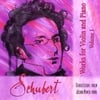Here are some things every piano student should know when it comes to lesson/performance etiquette. Most of you will probably realize you already know these things, but sometimes it is good to be reminded once again. As new situations come up (new ones always do!) I'll add more to the list.
At The Lesson
1) Show up on time with all of your materials. Smile and greet your teacher pleasantly when you come in.
2) NEVER bring food into a lesson (unless it's for me).
3) NEVER chew gum at a lesson. If I make you count out loud, you might just choke. Not good.
4) Be prepared. If you had a bad week of missed practice, admit this to your teacher up front.
5) TRIM and FILE your fingernails regularly. You CANNOT play the piano properly with long fingernails. Sorry, teenage girls: this is a sacrifice you have to be willing to make.
6) Do not play/goof off while your teacher is talking to you. Sit still and listen carefully. You might learn something that will help improve your music-making.
7) Sometimes you will become frustrated with yourself. Try to maintain your composure because losing your temper will not help your music-making. Take deep breaths and relax.
8) Your attitude at your lesson should be positive; you should be open-minded and willing to listen to constructive criticism. Be mentally prepared to concentrate for the full length of the lesson. I have to do this, so I think you should also.
9) ASK QUESTIONS. Show an interest in what you are doing. At least try to stump your teacher once in a while!
10) Enjoy and appreciate your time at the lesson. It is a great privilege to take private lessons for artistic training. Many people do not have the resources to do this. You are one of the lucky ones -- don't forget that.
At a Performance/Recital that includes You
1) Come to your performance location EARLY.
2) Warm-up and play through your repertoire before you get to the recital.
3) Dress to impress. No sneakers, jeans, shorts, or stained shirts. Avoid t-shirts. Suits are not necessary. "Sunday best" will do the trick.
4) Play your piece(s) with conviction and artistry. Strive to do your best.
5) If you have a memory slip, move on ahead and don't worry about it.
6) If you have a memory slip, move on ahead and don't worry about it.
7) If you have a memory slip, move on ahead and don't worry about it.
8) Re-read numbers 5-7 again.
9) ALWAYS BOW after a performance. If your audience is clapping to thank you for your performance, you must thank them back by bowing. That is the gesture our culture has agreed on for this kind of ritual and it looks dumb and uncouth to not bow after you perform. Smile at your audience before and after your bow.
10) If people compliment you after your performance, thank them and tell them you appreciate their comments. There is no need to tell them what you did wrong or that you thought it "stank", even if you had 24 memory slips and 85 wrong notes.
At a Performance/Recital for which you are in the Audience
1) Be on time for the performance. If you are late, wait until a silent break on stage before finding your seat. NEVER walk into a stage performance while music is being played live.
2) Dress appropriately for more formal events (e.g., orchestra concerts).
3) Do not eat/sleep/talk during performances.
4) Be attentive and involved with what's happening on stage. In other words, don't go to a performance and read your Harry Potter book the whole time.








0 comments:
Post a Comment